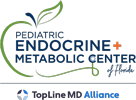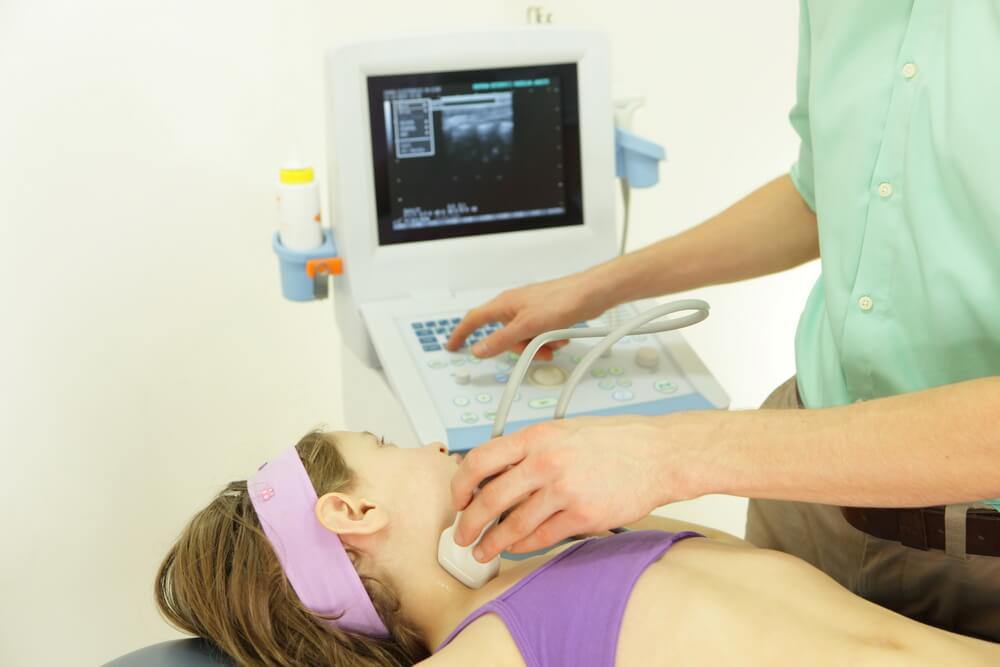Congenital hypothyroidism (CHT) is a health condition that’s present from the moment of birth and characterized by an underdeveloped thyroid gland or poor production of thyroid hormone. Essentially, children with congenital hypothyroidism can’t produce the amount of thyroid hormone their body requires for proper functioning, such as infant brain development and healthy childhood growth. Children diagnosed with CHT should start thyroid disease treatment in Florida at PEMC as soon as possible.
The Cause of Congenital Hypothyroidism
The development of a thyroid gland starts in early pregnancy. In general, at eight weeks of pregnancy, the baby should already have a properly positioned thyroid gland in the lower neck. However, in some kids, the gland doesn’t shift to its regular position or fails to develop correctly. This particular type of CHT is known as dysgenesis. It’s highly unlikely to have more than one child with this condition.
There’s another type of CHT known as dyshormonogenesis. In this case, the thyroid gland is properly developed and positioned, but the issue lies in the low production of thyroid hormone. If the faulty CHT gene is inherited from one of the parents, there’s a higher risk of having more children with this condition.
That said, the biggest causes of congenital hypothyroidism in children include:
- A poorly developed or missing thyroid gland
- A genetic defect that lowers the production of thyroid hormone
- Very little iodine in the mother’s diet while pregnant
- Using antithyroid treatment for thyroid cancer or radioactive iodine while pregnant
- Using medications that can affect the production of thyroid hormone while pregnant, such as lithium or sulfonamides

Common Congenital Hypothyroidism Symptoms
Typically, newborns won’t show any immediate symptoms that would suggest congenital hypothyroidism since these often become apparent only after the first couple of months. But once they start showing, they commonly include the following:
- Unusually slow or no weight gain
- Lack of desire to eat
- Excessive need for sleep
- Lethargy and fatigue
- Dry, pale, and/or cool skin
- Yellowing of the whites of the eyes and skin
- Swelling around the navel, swelling of the skin, and/or swelling in the neck
- Thickened facial features
- Unusually large tongue
- Hoarse voice
- Persistent constipation
- Poor muscle tone
- Abnormal bone growth
- Generally stunted growth
- Very little crying
- Mental retardation
Not all children with CHT will exhibit the same congenital hypothyroidism symptoms.
In order to prevent health and development complications, babies with CHT have to receive congenital hypothyroidism treatment as soon as possible, usually within the first two to three weeks after birth. Therefore, all newborns are tested for serious diseases a couple of days after delivery with a test known as the newborn screen. This includes blood tests for proper thyroid function, the amounts of thyroid hormones, as well as the amounts of hormones that promote the production of thyroid hormones. If you just had a baby, ask your pediatrician about the results of the newborn screen. The diagnosis doesn’t depend on waiting for the potential symptoms to show.
If the results of the newborn screen are suggestive that there is a problem with the thyroid gland, your doctor may request additional blood work and possibly a thyroid gland imaging test as well. In case your baby gets diagnosed with CHT, don’t hesitate to contact us at the Pediatric Endocrine and Metabolic Center of Florida for adequate congenital hypothyroidism treatment.
Congenital Hypothyroidism Treatment
If the baby’s blood tests come back positive for CHT, they will have to be started on levothyroxine, which is a synthetic thyroid hormone T4, as soon as possible. The initial dose will depend on several different factors, primarily the baby’s weight, but it will have to be adjusted as the child grows. Therefore it’s necessary to regularly take your child for blood tests measuring their TSH and thyroid hormone levels. The tests should be performed in infancy and childhood every two to six months. During the first few months of life, these tests should be performed every couple of weeks.
Thyroid hormone replacement can be given in an oral solution or tablets that can be crushed and given with water. The solution can be given to a baby with a pacifier, medicine dispenser pipette, or a spoon. However, it shouldn’t be mixed with a whole feeding bottle as it often happens that babies don’t drink the entirety of it. In the case of tablets, they can be crushed and mixed with 1oz of liquid, preferably plain water since calcium and soy can interfere with the absorption of the medication. Once the child is old enough to swallow properly and drink from a cup, they can be given regular levothyroxine tablets.
On its own, levothyroxine treatment shouldn’t cause any serious side effects as it simply acts as a replacement for the thyroid gland hormone that the child’s body already needs. However, side effects could happen if the dose of levothyroxine is too large or too little.
When given more levothyroxine than they need, kids may experience symptoms of an overactive thyroid (hyperthyroidism), which includes poor weight gain, fast growth, poor sleep, and restlessness.
If they’re given less levothyroxine than they need, kids can show symptoms of an underactive thyroid (hypothyroidism), which includes slow growth, sudden weight gain, lethargy, and cold extremities.
These side effects shouldn’t last too long if the parents take their child to the doctor regularly and get the proper tests done so that the dosage of levothyroxine can be adjusted accordingly.

Associated Conditions and Potential Complications
Babies born with congenital hypothyroidism are at a high risk of developing intellectual disability if the treatment isn’t administered quickly. Essentially, the child’s IQ can significantly decrease every month of the delayed treatment. It’s also possible to suffer from growth and bone strength issues in this situation. Other potential complications are as follows:
- Problems with hearing and vision
- Issues with attention and memory
- An unusual way of walking
- An inability to speak
- Muscle spasticity
- Autistic behavior
The early screening test is performed precisely because of the high possibility of avoiding issues such as mental and growth disabilities. It’s important to note that, even with adequate treatment, some kids affected by congenital hypothyroidism may show slower learning abilities compared to their peers. But, it’s considerably more likely that babies who tested positive for CHT and received the right treatment immediately will grow up to have a completely normal and independent adult life, with a normal childhood, IQ, and growth process.
As mentioned, the outlook of children with CHT will highly depend on how quickly the diagnosis and treatment are established. The longer it takes for adequate treatment to be administered, the more physical and learning problems the child is likely to have later on in life. Fortunately, hormonal imbalances such as congenital hypothyroidism can be effectively treated by an experienced pediatric endocrinologist. Basically, pediatric endocrinology focuses on diagnosing and treating children’s illnesses related to metabolism and hormones. You can always count on expert pediatric endocrinologists at the Pediatric Endocrine and Metabolic Center of Florida (PEMC) if your child requires medical help for any metabolism and/or hormone disorders.


